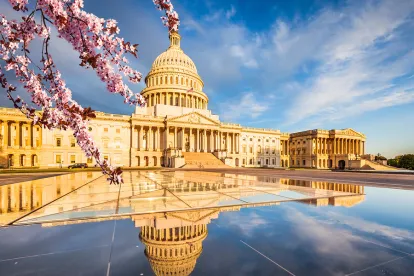Go PRO. As the Buzz has been predicting for quite a while, on February 6, 2020, the U.S. House of Representatives passed the Protecting the Right to Organize Act of 2019 (PRO Act). Last May, we covered the drastic changes the bill would make to federal law. The bill is like the Employee Free Choice Act on steroids (or, for a more timely reference, electronic buzzers). The bill has zero chance of getting past Senator Mitch McConnell’s paper shredder, but it is significant nonetheless. By advancing the bill through the House, proponents of the PRO Act have staked out new ground on the labor policy front, and there will be no backing down from this position should the political winds change direction come November.
Leen Out. On February 3, 2020, President Donald Trump announced that he will nominate Craig E. Leen, currently director of the Office of Federal Contract Compliance Programs (OFCCP), to be the inspector general at the Office of Personnel Management. Leen, who has been running OFCCP since roughly August 2018, accomplished quite a bit during his short tenure at the U.S. Department of Labor (DOL) subagency. For starters, Fiscal Year 2019 was a record year for OFCCP with regard to the collection of fines. Beyond that, Leen instituted multiple internal changes intended to create more transparency between the agency and the regulated community. Leen also put OFCCP on course to finalize regulations that would codify some of those transparency initiatives, in addition to clarifying the legal obligations of religious objectors and TRICARE providers.
Fed Contractor Regs Scrapped. Speaking of federal contractors, late last week the DOL’s Wage and Hour Division (WHD) formally rescinded regulations finalized in 2011 that required successor federal contractors in certain circumstances to offer a right of first refusal of employment to employees employed under the predecessor contract. The defenestration of the regulations is a formal and necessary response to the president’s 2019 executive order that the Buzz covered recently.
We’re From the Government, and We’re Here to Help. Government regulators are offering compliance assistance webinars to help stakeholders understand two recent high-profile policy initiatives: the WHD’s new joint-employer rule (effective March 16, 2020) and United States Citizenship and Immigration Services’ (USCIS) new H-1B electronic preregistration system (opening on March 1, 2020). This week, the DOL announced that it will hold a webinar on March 3, 2020, on the joint-employer rule (a webinar previously scheduled for February 25 is somehow full). And late last week, USCIS announced that it will provide an instructional webinar on the new registration portal for attorneys and representatives on February 11, 2020.
Skynet Funding Bill on the Way? On February 5, 2020, the House Subcommittee on Civil Rights and Human Services held a hearing titled “The Future of Work: Protecting Workers’ Civil Rights in the Digital Age.” Among other things, the hearing addressed the use of artificial intelligence and computer algorithms when making workplace decisions, and whether they may have a disparate impact on certain employees or applicants. Former chair of the Equal Employment Opportunity Commission Jenny Yang testified before the subcommittee and advocated for a workers’ bill of rights for algorithmic decisions. The Buzz isn’t expecting legislation like this to be introduced in the near term, but in the meantime, the Ogletree Deakins Technology Practice Group will be all over this developing area of the law.
Where in the World Is Secretary Bernhardt? On the evening of February 4, 2020, President Trump delivered his third State of the Union address. In attendance were most members of Congress, many executive branch officials, and even four justices of the Supreme Court of the United States (including Chief Justice John Roberts). However, David Bernhardt, secretary of the U.S. Department of Interior, did not attend, as he spent the evening at an undisclosed location as the designated survivor. A creation of the Cold War in the 1960s, the designated survivor concept is intended to ensure the continuity of the government in the event of catastrophe. The designated survivor is usually a Senate-confirmed lower-level cabinet member (e.g., it would not be secretary of state or secretary of defense) who must be constitutionally eligible to serve as president by being a natural-born citizen who is at least 35 years old and who has lived in the United States for at least 14 years. Kiefer Sutherland most certainly meets those criteria.




 />i
/>i

